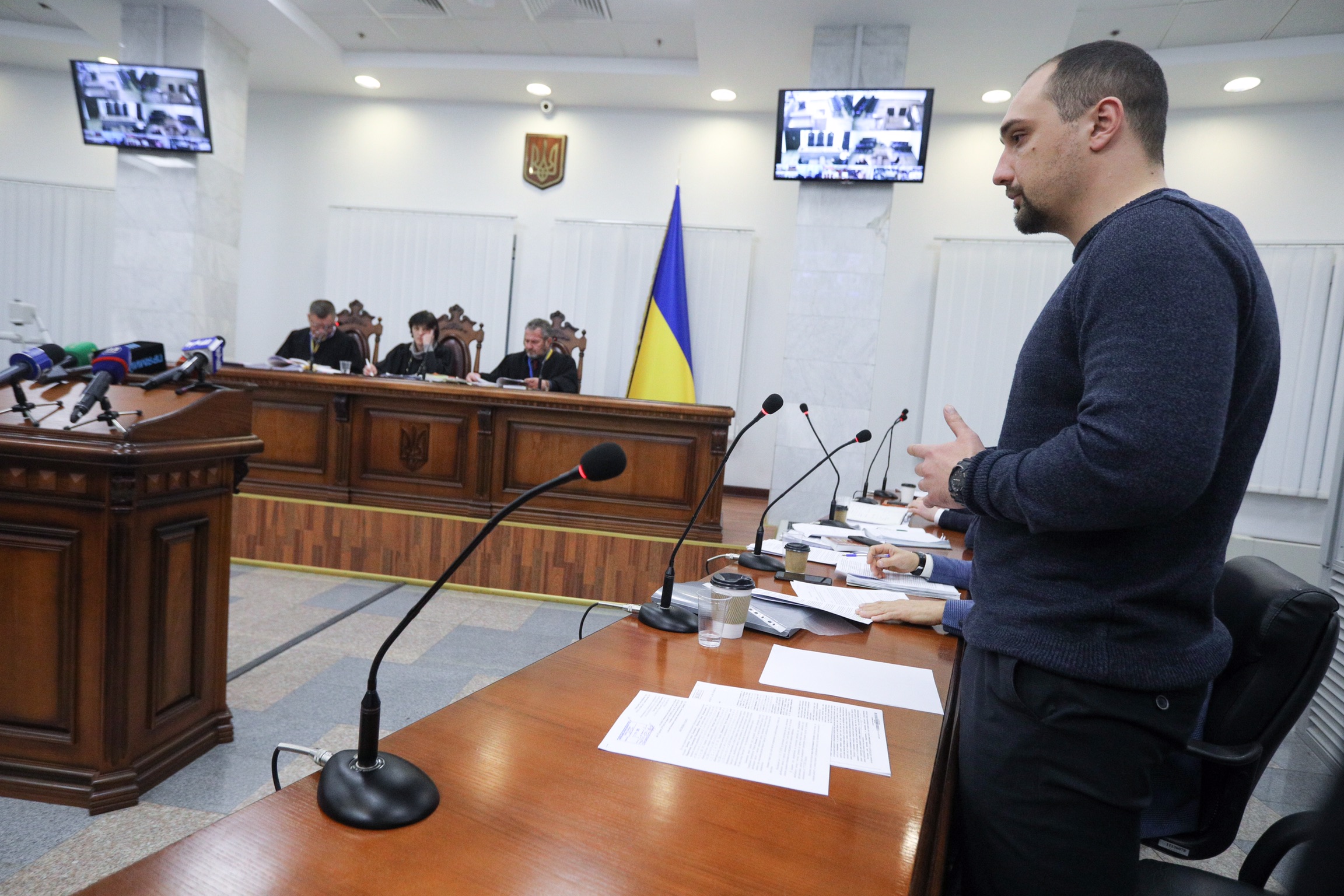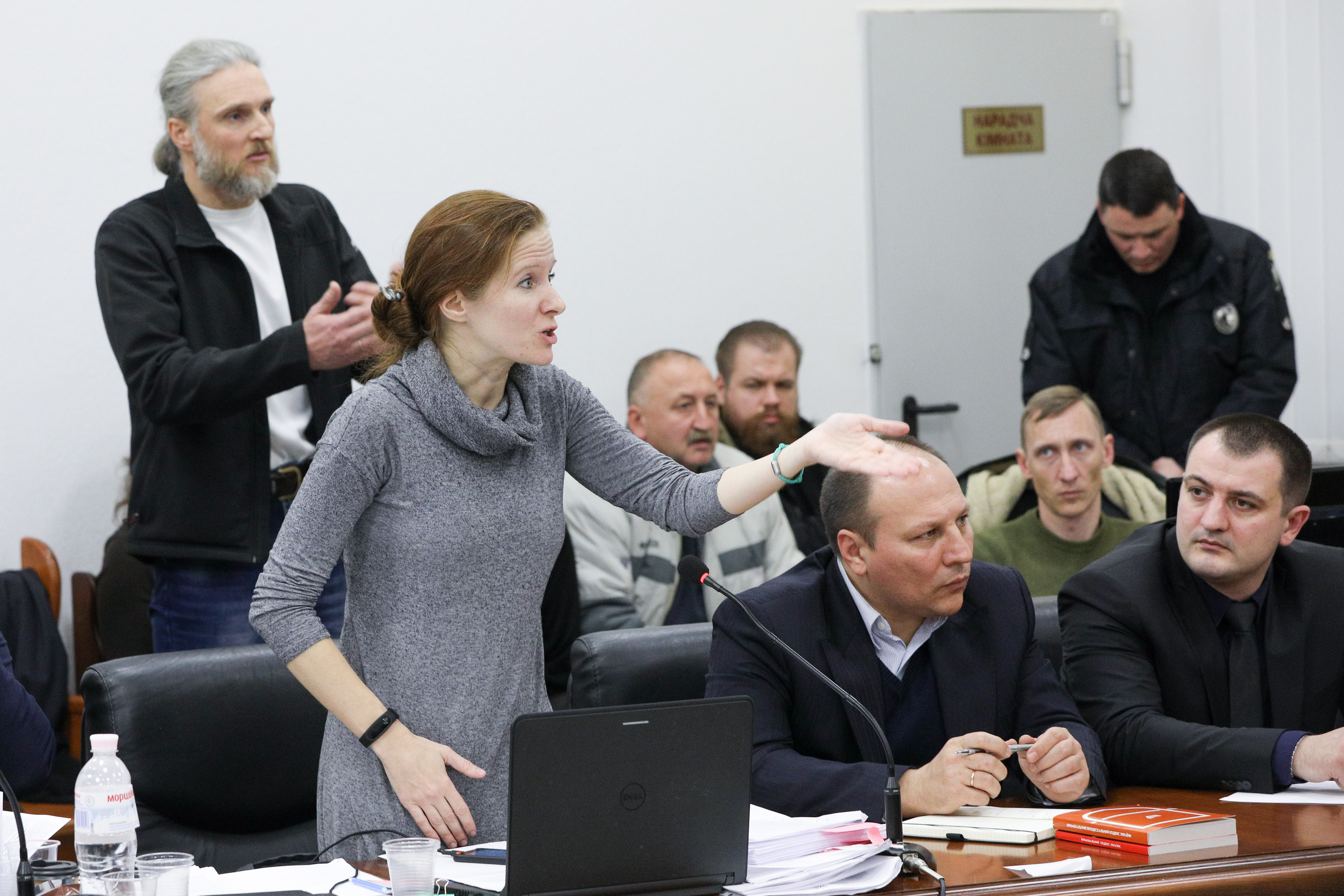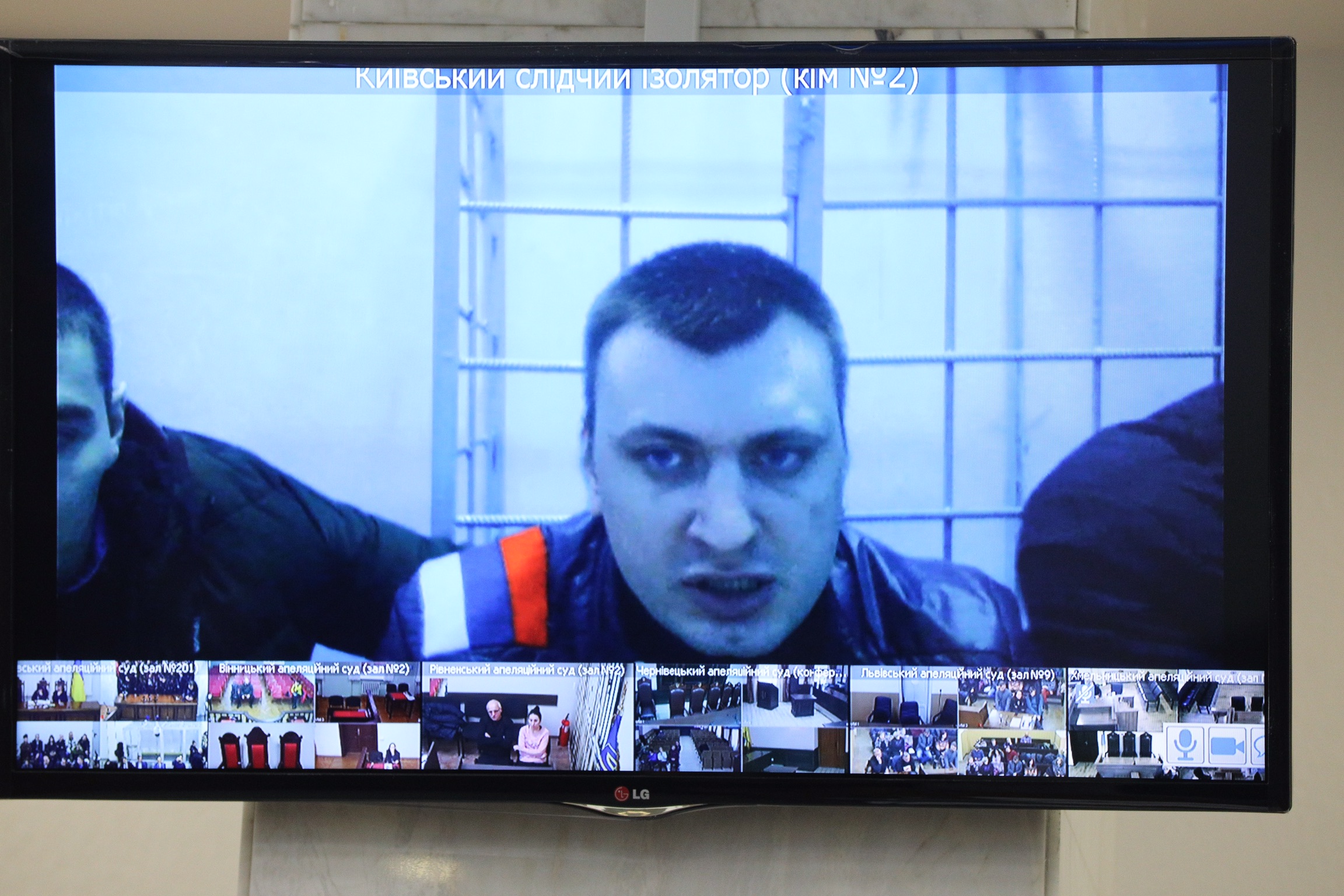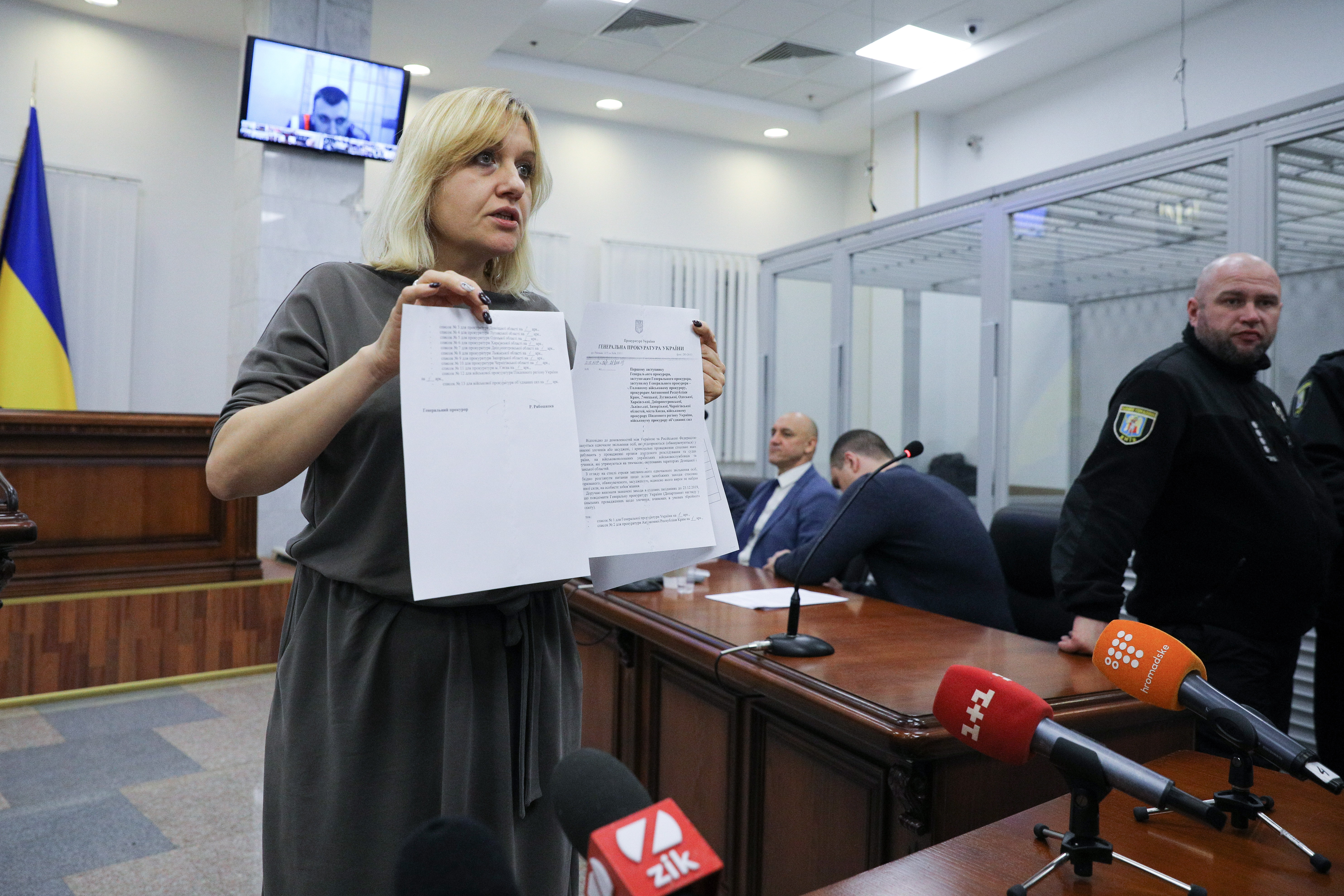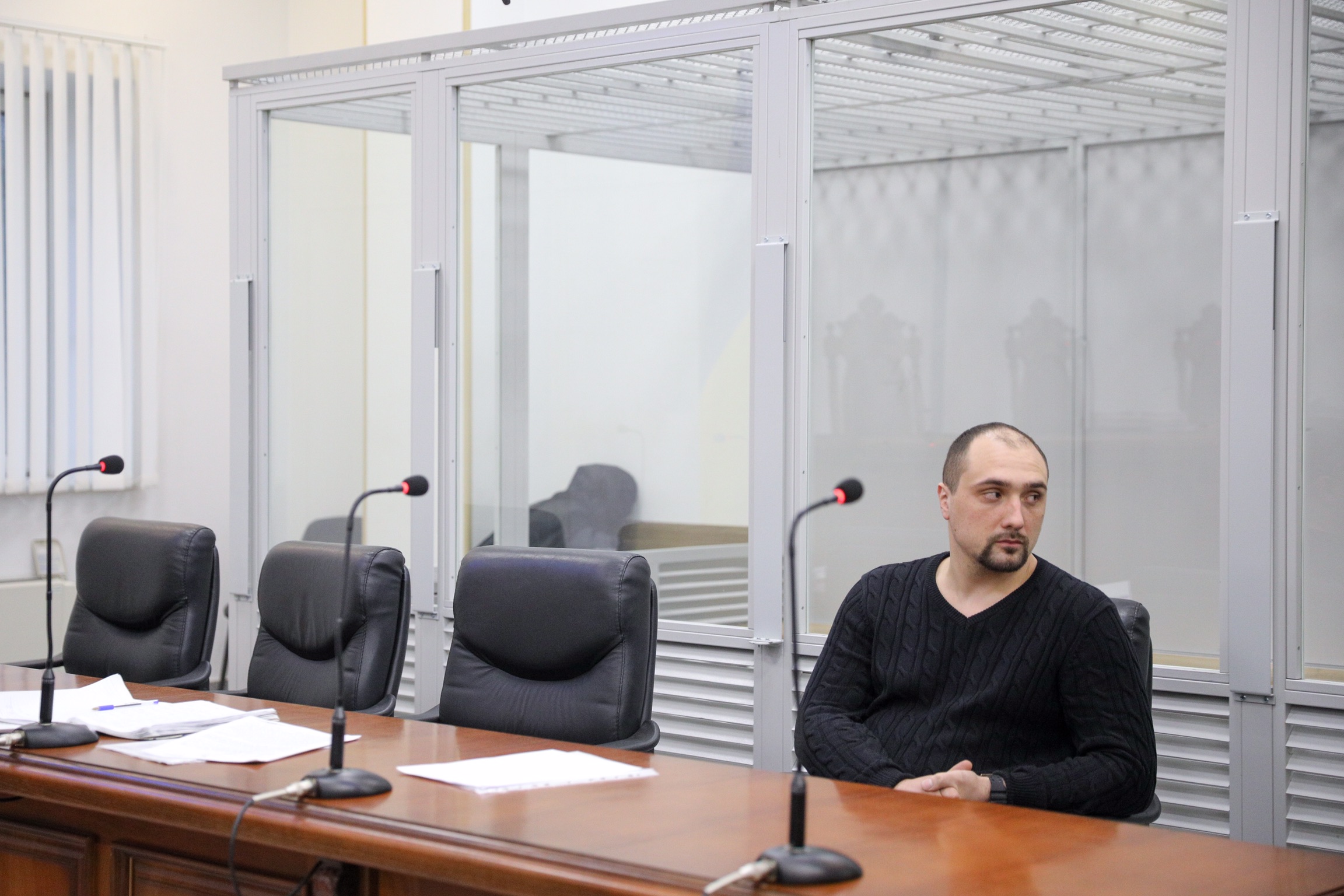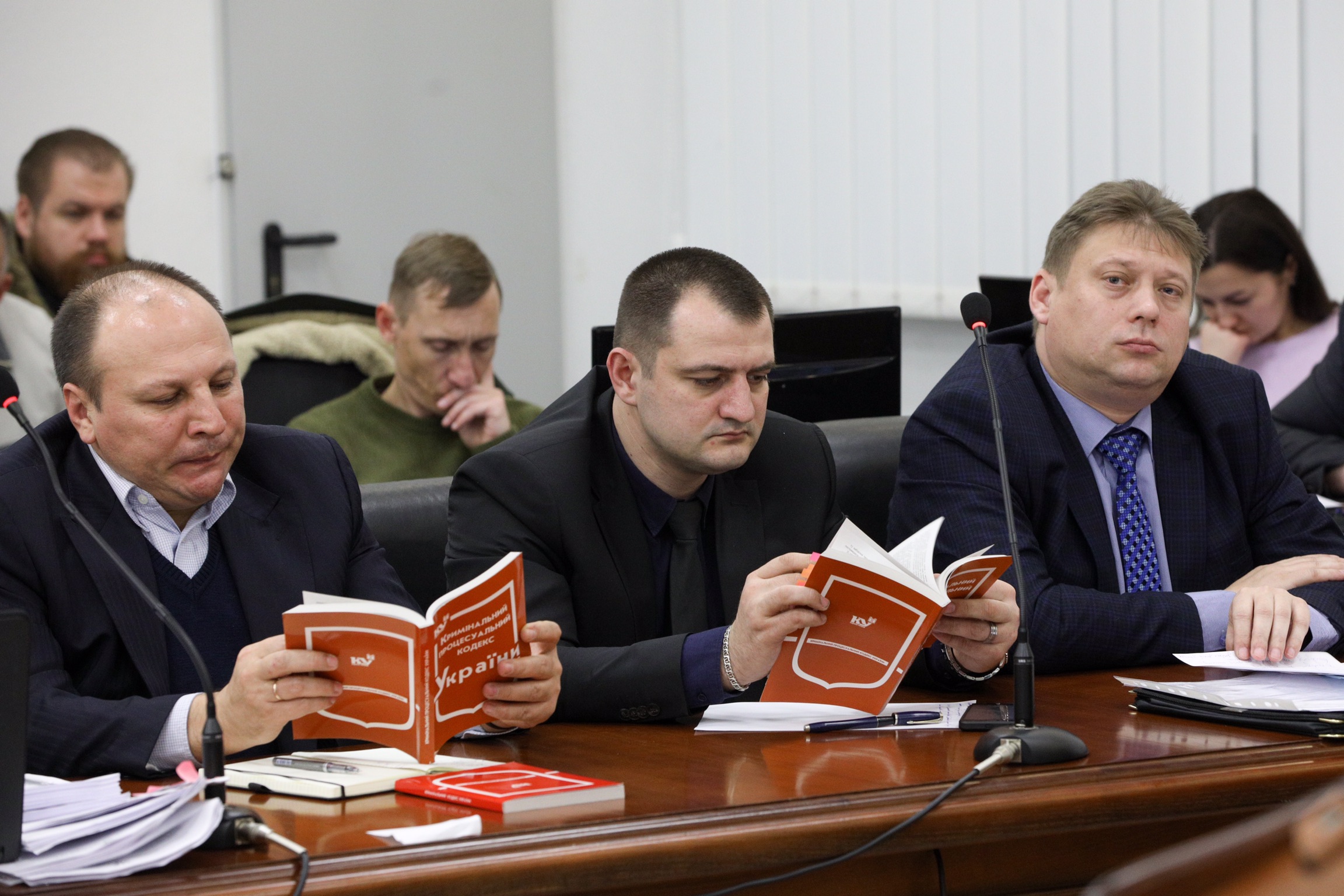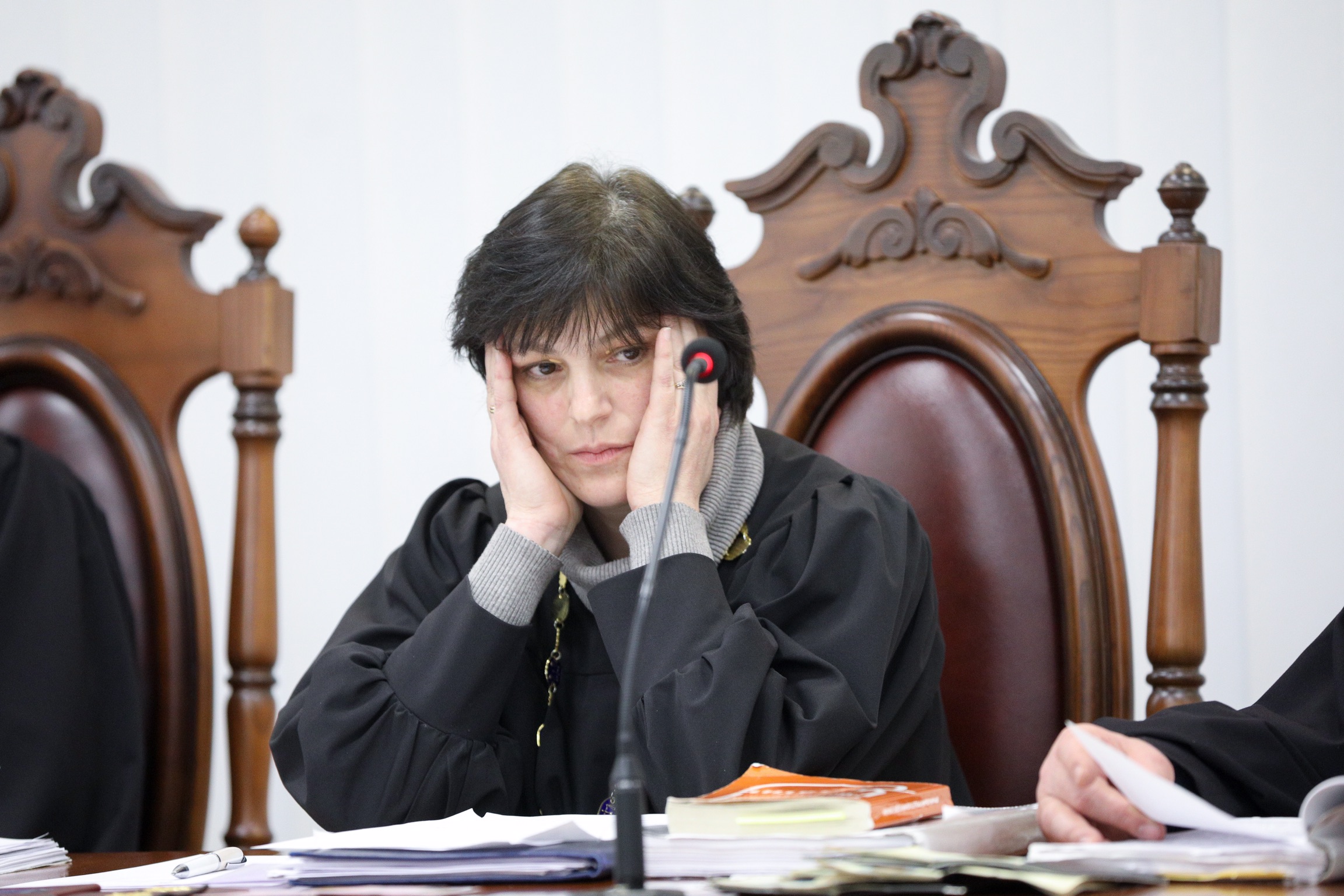The Kyiv Court of Appeal on Dec. 28 released from custody five former police officers of the now disbanded Berkut unit who had been charged with the alleged murder of protesters during the 2013-2014 EuroMaidan Revolution.
About 100 demonstrators were killed during the revolution, which ousted ex-President Viktor Yanukovych, and Berkut officers are accused of the worst violence.
The release appears to be part of a planned prisoner exchange with Russia and its proxies in the eastern Donbas region. That swap may take place between Kyiv and Russia-backed militants on Dec. 29.
As part of the Berkut case, Ukrainian investigators have looked into Russia’s alleged role in the murder of EuroMaidan protesters.
Vitaly Tytych, a lawyer for the killed protesters’ families, argued that the aim of the release of the officers was to prevent investigators from identifying Russia’s role in the alleged murders. Moscow denies any involvement in the killings.
The initial group of prosecutors in the case – Oleksiy Donsky, Yanis Simonov and Yulia Malashych – were against releasing the suspects. The lawyers and families of EuroMaidan protesters had said they trusted those prosecutors.
However, on the eve of the court hearing Prosecutor General Ruslan Riaboshapka replaced Donsky, Simonov and Malashych with new prosecutors – Serhiy Kutsy, Vitaly Subotin and Oleksandr Shevalenko.
Tytych and Sergii Gorbatuk, one of the top investigators in EuroMaidan cases who were recently fired by Riaboshapka, argued he had no legal grounds to replace prosecutors in the case.
The new prosecutors supported the suspects’ lawyers, who claimed that there is no risk of the suspects fleeing. Later, the new prosecutors also presented a letter from Riaboshapka saying that the suspects should be released because they are part of the prisoner exchange with Russia.
The demonstrators’ lawyers argued that the letter was evidence of Riaboshapka’s unlawful interference in the trial.
The Prosecutor General’s Office did not respond to a Kyiv Post request for comment. An aide of Riaboshapka did not respond to questions.
Viktoria Deineka, another lawyer for the slain demonstrators, said that the letter about the prisoner exchange was in itself proof that the suspects intended to flee – that is, to go to Russia as part of the upcoming prisoner exchange.
Tytych and other lawyers argued that reference to the prisoner exchange is nonsense and cannot be grounds for releasing the suspects under any Ukrainian law. Moreover, the Berkut officers are not considered prisoners of war.
Tytych also accused the court of violating the procedure by failing to notify the demonstrators’ lawyers about the hearing.
Read more: Updated: Major prisoner swap may take place on Dec. 29
Ukrainian President Volodymyr Zelensky confirmed on Dec. 28 that the prisoner exchange between Ukraine and Russia-backed forces in the Donbas may take place on Sunday, Dec. 29, but said the prisoner lists were still being finalized.
According to Hromadske, five officers from the now disbanded Berkut special police unit, known for its violent actions during the 2014 Euromaidan Revolution, are to be on the list of prisoners released and swapped by Ukraine.
A law enforcement source who could not be named due to ongoing legal proceedings told the Kyiv Post that the Ukrainian authorities intend to have a trial in absentia for the accused Berkut officers if they go to Russia as part of the anticipated prisoner exchange.
Update: There were angry scenes in Kyiv in the early hours of Dec. 29, following the court ruling on Dec. 28, as a handful of activists barricaded streets and attempted to prevent vehicles from leaving the Lukyanovsky pre-trial detention center in the capital.
🔴 Блокування вивозу “беркутівців” з суду pic.twitter.com/PRg3ZhnWtp
— Цензор.НЕТ ✍️ (@censor_net) December 28, 2019
During the night, protesters gathered at the pre-trial detention center in Kyiv. Activists wanted to prevent the release of the charged Berkut officers, scheduled for Dec. 29, when they are expected to be part of a major prisoner exchange with Russian-backed forces in the Donbas.
Протест під СІЗО у Києві.
Активісти хочуть не допустити обміну звільнених ексберкутівців, запланованого на завтра. pic.twitter.com/ZIWsqeM6Tn
— Радіо Свобода (@radiosvoboda) December 28, 2019
